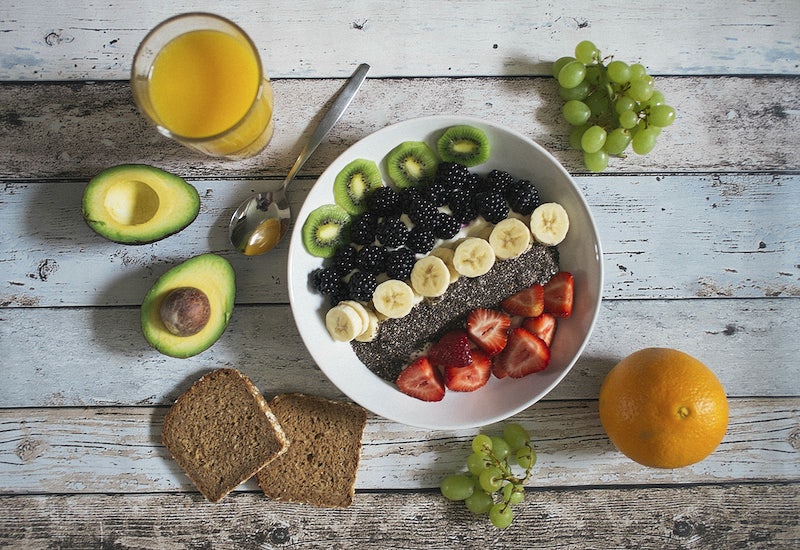Master Your Metabolism: Diet and Fitness Goals for a Healthier You
 |
| Healthy Diet |
Maintaining a healthy metabolism is key to achieving your fitness goals and overall well-being. Your metabolism, the process by which your body converts food into energy, plays a crucial role in how efficiently you burn calories and manage your weight. This is why exercise and diet should be done at the same time. For diet assistance help, MAKE A BOOKING →
By understanding how your metabolism works and making smart choices about your diet and exercise routine, you can optimize your metabolism and set yourself up for success on your fitness journey.
Understanding Your Metabolism
Metabolism is often misunderstood as simply being fast or slow. In reality, metabolism encompasses a complex series of chemical reactions that occur in your body to sustain life. These reactions are influenced by a variety of factors, including genetics, age, body composition, and hormone levels.
Factors Influencing Metabolism
- Genetics: Some people are naturally predisposed to have a faster metabolism due to their genetic makeup. However, genetics are not the sole determinant of metabolism, and lifestyle factors play a significant role.
- Age: Metabolism tends to slow down with age, primarily due to a loss of muscle mass and a decrease in physical activity.
- Body Composition: Muscle tissue burns more calories at rest than fat tissue, so having a higher muscle mass can boost your metabolism.
- Hormones: Hormones such as thyroid hormones, insulin, and cortisol can influence metabolism. Imbalances in these hormones can lead to metabolic issues.
Optimizing Your Diet for Metabolism
The food you eat has a direct impact on your metabolism. Making healthy choices can help boost your metabolism and support your fitness goals.
Focus on Whole Foods
Whole foods, such as fruits, vegetables, whole grains, lean proteins, and healthy fats, provide essential nutrients that support a healthy metabolism. These foods are also more filling and can help prevent overeating.
Avoid Crash Diets
Extreme calorie restriction can slow down your metabolism and make it harder to lose weight in the long run. Instead, focus on creating a balanced diet that includes a variety of nutrient-dense foods.
Stay Hydrated
Drinking enough water is crucial for maintaining a healthy metabolism. Dehydration can slow down your metabolism and affect your body's ability to burn calories efficiently.
Incorporate Protein
Protein-rich foods, such as lean meats, fish, eggs, and legumes, can help boost your metabolism. Protein requires more energy to digest compared to fats and carbohydrates, leading to a temporary increase in calorie burning.
The Role of Exercise in Metabolism
Regular physical activity is essential for maintaining a healthy metabolism and achieving your fitness goals. Exercise helps build muscle mass, which can increase your resting metabolic rate.
Cardiovascular Exercise
Cardiovascular exercise, such as running, cycling, or swimming, can help burn calories and improve your overall fitness level. Aim for at least 150 minutes of moderate-intensity cardio each week.
Strength Training
Strength training, such as weightlifting or bodyweight exercises, can help build muscle mass and boost your metabolism. Include strength training exercises at least twice a week, focusing on all major muscle groups.
High-Intensity Interval Training (HIIT)
HIIT workouts involve short bursts of intense exercise followed by periods of rest or lower-intensity exercise. HIIT can help increase your metabolism and burn more calories in a shorter amount of time.
Lifestyle Factors for a Healthy Metabolism
In addition to diet and exercise, certain lifestyle factors can also impact your metabolism.
Get Adequate Sleep
Poor sleep can disrupt your metabolism and lead to weight gain. Aim for 7-9 hours of quality sleep each night to support a healthy metabolism.
Manage Stress
Chronic stress can increase levels of cortisol, a hormone that can slow down your metabolism. Find healthy ways to manage stress, such as meditation, yoga, or spending time in nature.
Conclusion
Mastering your metabolism is an essential part of achieving your fitness goals and maintaining a healthy lifestyle. By understanding how your metabolism works and making smart choices about your diet, exercise, and lifestyle, you can optimize your metabolism and set yourself up for success on your fitness journey.
Remember, small changes can lead to big results, so start making healthy choices today for a healthier you tomorrow. For example, try vegan Italian food.
Comments
Post a Comment